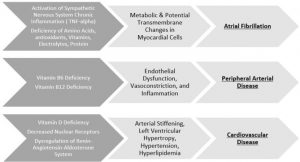Pediatric residents are confronted with moral dilemmas in beginning- and end-of-life conditions all through their coaching. These conditions are innately difficult, but regardless of suggestions that residents obtain coaching in ethics and end-of-life domains, they proceed to report the want for further coaching.
To tackle these considerations, we developed an interactive and reflective palliative care and medical ethics curriculum together with classes specializing in moral dilemmas at the starting and finish of life.
This module features a trio of case-based, small-group discussions on synthetic diet and hydration, futility, and moral issues in neonatology.
Content was developed primarily based on a wants evaluation, enter from native consultants, and beforehand printed materials. Trainees accomplished assessments of consolation and understanding earlier than and after every session.
The module was attended and assessed by a mean of 27 trainees per session, together with residents and medical college students. Knowledge of moral issues improved after particular person classes, with 86% of trainees reporting understanding moral issues concerned in the determination to withdraw or withhold medically offered diet and hydration and 67% of trainees reporting understanding the use of the time period futility.
Trainee consolation in offering counseling or suggestions relating to particular moral points demonstrated a development towards enchancment however didn’t attain statistical significance.We efficiently carried out this

revolutionary module, which elevated trainees’ consolation with end-of-life care and moral conflicts. Future research ought to give attention to the trainees’ capacity to implement these abilities in scientific follow.
Nutrition performs a significant position in well being and the restoration course of. Deficiencies in macronutrients and micronutrients can impression the growth and development of numerous problems. However, malnutrition screening instruments and their utility in the scientific setting stay largely understudied.
In this examine, we summarize the significance of dietary adequacy and its affiliation with neurological, cardiovascular, and immune-related problems. We additionally look at basic and particular malnutrition evaluation instruments utilized in healthcare settings.
Since the implementation of the screening course of in 2016, malnutrition knowledge from hospitalized sufferers in the Geisinger Health System is offered and mentioned as a case examine.
Clinical knowledge from 5 Geisinger hospitals reveals that ~10% of all admitted sufferers are acknowledged for having some type of dietary deficiency, from which about 60-80% of the sufferers are focused for a extra complete evaluation. Finally, we conclude that with a mirrored image on how technological advances, particularly machine learning-based algorithms, will be built-in into digital well being information to supply determination assist system to care suppliers in the identification and administration of sufferers at increased threat of malnutrition.
The goal of this examine was to research the vitamin D standing and associated elements in community-dwelling Korean stroke survivors. Data of 23,872 people ≥20 y who participated in the Korea National Health and Nutrition Examination Surveys (KNHANES) have been analyzed.
Participants who had ever been identified with stroke by a physician have been outlined as stroke survivors (n=431). The serum 25-hydroxyvitamin D (25(OH)D) stage was measured by radioimmunoassay, and vitamin D deficiency was outlined as 25(OH)D<20 ng/mL.
The affiliation between vitamin D and stroke standing was analyzed utilizing multivariable basic linear fashions and logistic regression fashions adjusted for sociodemographic and scientific covariates. The adjusted imply 25(OH)D stage of stroke survivors was considerably decrease than that of nonstroke controls; nonetheless, after adjustment for systolic blood stress stage and use of antihypertensive treatment, the distinction was not statistically vital.
The burden of 25(OH)D deficiency was not increased in stroke survivors than in nonstroke controls (adjusted OR=1.14; 95% CI, 0.81-1.62). Current smoking was independently related to 25(OH)D deficiency amongst stroke survivors (adjusted OR=3.17; 95% CI, 1.33-7.55).
These findings indicated that remedy of hypertension and smoking cessation could also be necessary measures to regulate vitamin D ranges in stroke survivors.

